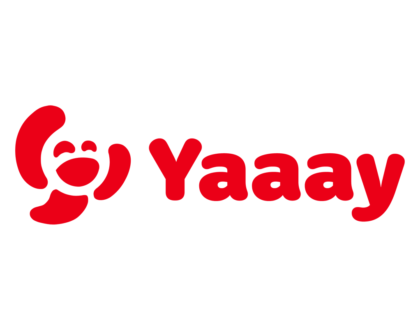Entry Sheet – everything you need to know!

by Madelaine
Simply put, an entry sheet (short ES) is an “application form” and resembles a cover letter in contents and purpose. Unfortunately, that’s where the similarities end, and the issues begin. Read on to learn what you need for a great entry sheet.
コンテンツ
Why you need an entry sheet
At first glance, an entry sheet looks like a resume and might seem like unnecessary paperwork. Typically, they are only required for entry-level positions and consists of basic questions about your personal and educational background, as well as a short essay section asking about your experiences and motivation.
READ ON Step by step Guide to writing a Japanese resume.
Filling out an entry sheet without due consideration can destroy your chances at a job, no matter how impressive your resume may be. Based solely on your entry sheet (and sometimes written tests
taken during company seminars or online)companies will decide whether to invite you to an interview. Many popular companies will sort out 90% of all candidates this way, often making their decisions within seconds of seeing your application form.
As entry-sheets vary from company to company, this is not a guide telling you what to write into each blank. Instead of telling you how to fill out an entry-sheet, I want you to be able to write an entry sheet that will get you to the job interview! Therefore this article covers ambiguous parts and I put together advice on how to write a convincing entry sheet.
5 General Rules
To not get excluded because of formalities, follow the five steps below, to make sure your entry sheet is conveying relevant information in a polite and concise way.
1. Focus on key experiences
Instead of giving an overview of all your skills and experiences, pick a few that best illustrate your strengths and make you stand out. Explain your choice by giving specific examples of how you used or showed a certain skill in the past. Be prepared to go into further detail during the interview.
2. Be precise
Write in a way that is easy to understand. As orientation, maybe try using the SSS and PREP frameworks. SSS stands for straight, specific, simple – or get to the point and avoid vague expressions and long-winded sentences.
PREP means point, reason, explanation, point and is a way to structure what you say so that it is easy to understand. By starting with your conclusion and then explaining the details, it will be easier for the other person to understand what you want to say.
3. Take the company’s perspective
Don’t stop at saying why you like the company, try to be specific about how you can help the company, or how your skills can be useful.
It doesn’t have to be anything crazy. Just by using the example of never having been late during university, you could show that you possess good planning and time management skills which will allow you to work in a focused and timely fashion.
4. Be polite
This almost doesn’t warrant mentioning, but for the sake of completeness: avoid colloquialisms and no symbols or emoji, please.
5. Fill out white space
Try to match the lengths of your statements to the space provided. What you and other people have to say varies, but it is the lengths the company deems ideal, so try to comply with it. Leaving too much white space means your answer is probably not detailed and thorough enough, which in turn means, you likely won’t be considered further.
1. The header: personal and educational background
Date
Fill in the date of the submission day (the day you hand it over in person, or send your mail or letter.)
Name
Write your name in your native language (using Romaji) and above in Katakana.
Regarding the order, Japanese usually write last name, first name in that order. I saw foreigners adopt that style or put their names in the original order as in John Smith.
Picture
Make sure it has the right size (paper and online). Go for a standard application picture with a friendly face.
Address
Write your address in the following order and make sure to not abbreviate anything.
〒160-0006 〇〇県〇〇市〇〇町 1丁目22番地33号 〇〇ビル アパートメント〇〇 44号室
Secondary Address
Give a second address if you might be unavailable at the above address for a time (vacations, travel, etc.)
Educational background
Start with your middle school graduation. Anything earlier is not necessary for the entry-sheet.
Other
- 得意な科目・分野
- Strong subject – sometimes they might ask for favorite classes, too.
- クラブ・サークル
- Clubs or circles – regular activities you participated in during university.
- アルバイト
- Your part-time jobs until now.
- 趣味・スポーツ
- Hobbies, sports – anything you are enthusiastic about is ok, as long as you are prepared to give further explanations in interviews.
- 健康状態
- Health condition – usually indicated by circling one of three available options.
2. 志望動機 – Reasons for application
What are they looking for?
This question asking for your しぼうどうき, your reasons for application, is really all about getting an understanding of you and your expectations. The company wants to see if you are passionate about the position and why. What matters to you? Do your values align with the company?
Keep in mind that key to getting hired is not to only showcase yourself as an unending well of motivation, but also about a mutually beneficial arrangement.
How to prepare
For this, you should do some research about the company and market.
Products, market, competitors, company culture, innovations, challenges – the more you know, the better you can explain what makes you want to join the company and why you are a valuable addition to their team.
How to structure
To make your argument convincing, a good structure is key. I know of two reliable patterns for organizing your thoughts.
Either you start from your own goal, explaining the reasons, and then state how and why you want to pursue it, ending with how you imagine your work and role at the company (realizing your goal).
The other option is to start with stating why you want to join the company, explain what exactly appealed to you, why it made you think this company is the best match for you, and again end in describing what you want to do at the company (benefiting the company).
If you follow the basic structure below, answer the three questions in it and keep your text SSS (straight, specific, simple), you should have a solid foundation to communicate your motivation.
How to write
1. Why did you choose this job/company?
State the reason(s) for choosing this job and company (what appealed to you/ goal at company).
Why do you want to work in that position? Do you have a goal you want to fulfill in that job? Why do it at that company: Innovative products? Company philosophy? Work culture?
This first part is really about your motivation (vision/goal and reasons), so feel free to connect it to your own goals. Do you want to help build the next generation of low-emission cars? Is it your dream to introduce Japanese products to your home country?
Be as specific as you can and remember to connect your thoughts on why you choose both job and company.
2. Why did this company appeal to you?
After stating your goal and motivation for choosing the company, explain your reasons in detail. Use past experiences etc. to illustrate skills, values, and ambitions relevant to your choice. Again, be specific. And be ready to explain further in subsequent job interviews.
Here the goal is to show how you and your values match the company. And why among all the others out there this company is the best for you and your goals.
3. How do you imagine yourself working in the company?
The previous part was all about how the company is good for you, now it’s time to give back and explain why you are good for the company. So go ahead, bring in your own strengths and tell them how you will utilize them to benefit the company.
The company research done earlier will also help you to draw a clearer picture of how you imagine yourself working in the company and pointing out the ways you, with your set of skills, can help shape the company’s future, solve a specific problem, etc. Get creative and dream a little!
3. 自己PR(じこPR)self-promotion
What they are looking for
In this section, the company wants to learn about your strengths and other skills relevant to the position and company. Again, it is important to tailor the text to the company, because different organizations will look for different skills and personalities, depending on the job and working environment.
How to structure
As in the section above, to make your example easy to understand, structure it clearly.
For example: strength・example situation・problem・solution・result
Be sure to point out how your contribution specifically influenced the outcome.
How to write
Start with your main point. Follow up the statement with the reason and an example (PREP).
私の長所は〇〇です。
Think of it as an advertising slogan for yourself(キャッチコピー in Japanese.)
One Japanese website I used to refer to gives the following example:
Instead of saying “My strength is cooperation” try writing something like “I’m like glue. I can bring even very different people together as a team.” The point here is to be memorable and instead of a generic statement give a concrete example of how this strength shows.
Give specific examples from your experience, a project or something that illustrates your claim. Convey your thought process and actions, and be sure to illustrate how you utilizing your strength influenced the result.
Especially when scanning texts, people will read the top statement and things to the left of the page first, so place your strength visibly in those areas.
4. Other common questions
Now you know about the heart of every entry sheet and can give yourself a pat on the back.
Since the entry-sheet also serves as a conversation starter during the first interview, try to write about things you can elaborate on if asked to. I once had an interview, where the interviewer was so surprised by the topic of my graduation thesis, that we spent the largest bulk on bantering about Japanese politics.
This irregularity was caused by one of the other questions on the entry sheet.
Wait – you might think – more question?!? Rest assured that all the other questions are also typical interview questions and will be used only sparingly. This here could never be a complete list of possible questions, but it covers the most frequent ones.
Leadership experience?
リーダーシップを発揮した経験
This is not about showing some outlandish skills, but again choose a relatable experience of you taking the initiative in a group. Even if the outcome wasn’t ideal, you can explain what this made you realize and learn.
Strengths and weakness?
長所(強み)・短所(弱み)
This is probably the same in every country, try to pick a strength relevant to the job and a weakness less relevant to the job. Also keep in mind cultural differences, “I always speak my mind and work well independently” might not get the same reaction as it would in America.
What task do you want to do, challenge yourself at if hired and why?
当社で挑戦してみたい職務とその理由。
当社に入社して貴方がやりたい仕事を具体的に記述してください。
Feel free to connect it to your personal or career goals. Just make sure it is relevant to the company, too. For instance, imagine someone says that one day you want to start your own company and hope to learn about everything necessary to make a company successful. Recruiters will notice that person’s motivation and can see them as someone who will likely help the company grow, because he puts serious effort into his work and studies.
What’s your career plan? Where do you see yourself in 3, 5, 10 years?
将来のキャリアプラン
The 3 and 5 year plan should probably be about your growth within the company. When it comes to where you see yourself in 10 years, though, really talk about what you want to do with your achievements by that time.
An ability you have confidence in?
自信のある能力
This is another way to ask for your strength. Try to pick something that is relevant for the company or position you are applying to. If you are a new graduate and don’t have any job related hard-skills yet, even something like ‘studying hard and regularly until you mastered something’ is a good option to take
Anything else you want to emphasize?
特にアピールしたい事
This is really your bonus questions. It allows you to show an aspect of yourself that didn’t become apparent in the other questions. Think about what you know about the company, what employees might have told you at events, to make sure it is something that will positively impact your application.
Good Luck!
Most entry sheets will focus on the header and the 2 big topics “reason for application (志望動機)” and “self-promotion (自己PR)” but companies may add other questions as they see fit.
I hope this article helps you to write an entry-sheet that is sure to catch the attention of Japanese recruiters. Please share other questions you found in your entry sheet and your thoughts in the comments for future seekers!



